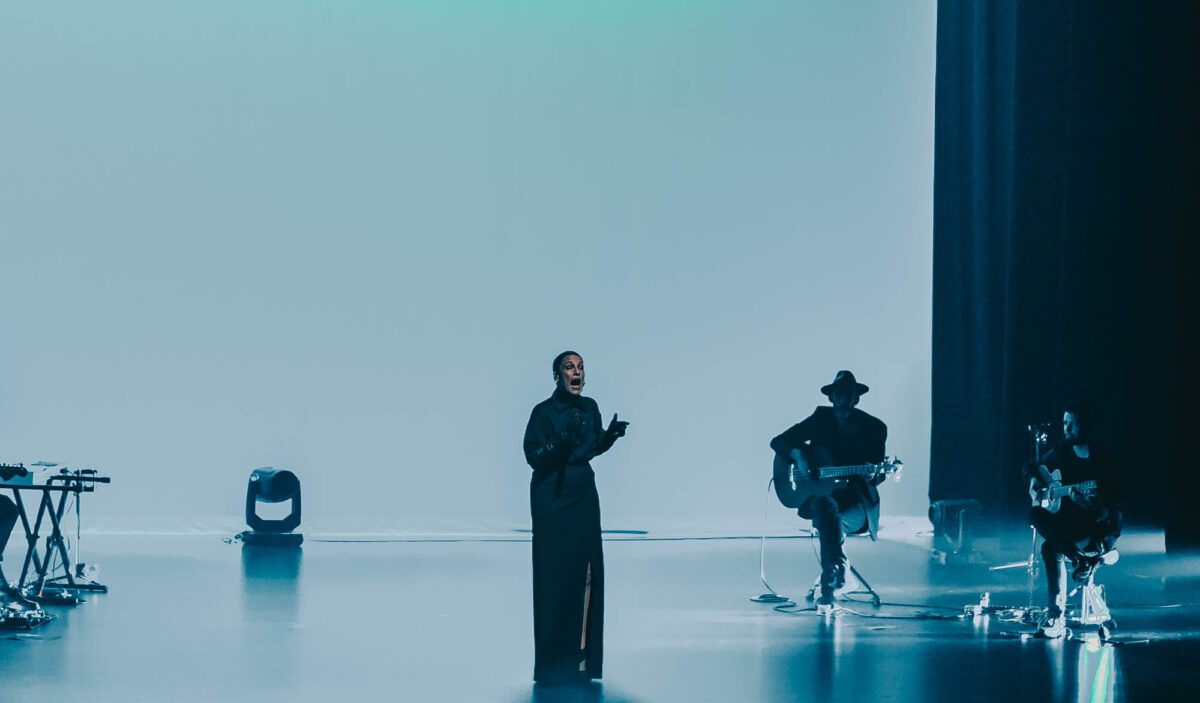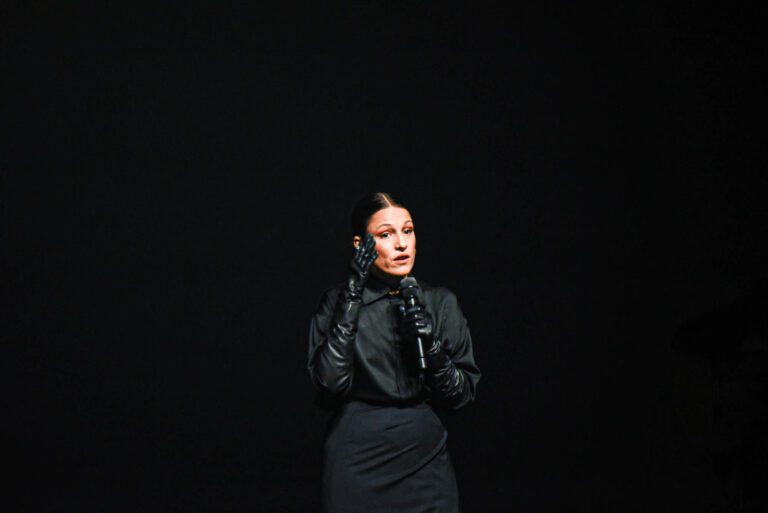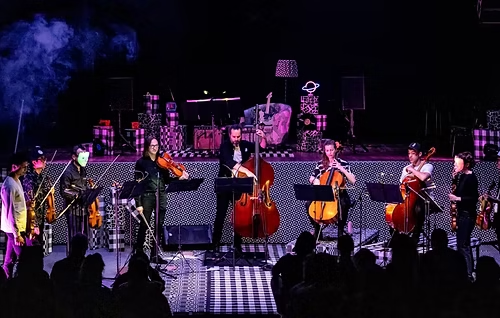A packed Outremont Theatre, full of Montreal’s Portuguese residents and lovers of fado music, was left stunned by Carminho and her band’s performance, which sometimes felt like an intimate opera, a live baring of one’s soul.
“I’ve been singing fado since I was in my mother’s womb,” Carminho told the audience, donning an all-black dress and black leather gloves. She kind of looked like a harbinger from the Underworld, and based on her professional demeanor, it seemed that she would be very serious. But her look was just that—a look—as she was actually quite humourous; cracking jokes with the audience, playing off her minimal French and broken English for a bit of levity between songs on her latest album Portuguesa and a few earlier works.
When she said she had been singing fado in the womb, this was no word of a lie. Her mother, Teresa Siqueira, is also a famous fado singer, and growing up, Carminho was surrounded by musicians in fado houses, so the lifestyle of fado music is deep within Carminho’s blood. And those who had no idea what fado was were given a brief history listen by Carminho. For her, fado is life, her language, a way to express the passion and hardships of the Portuguese people. With an origin story dating back farther than the 1800s, fado music follows a traditional structure and often sounds mournful, with long dramatic pauses for the singer to hold a specific impassioned note.

Carminho’s voice is full of life and sorrow, packed with a dramatic flare that shakes you into submission, leaving you speechless, whether you understand what the song is about or not. yet, Carminho wanted the audience to know what the songs were about, in fact, that was part of the show. A history lesson of fado, but also where the songs came from; what Portuguese poets wrote them, and which of Carminho’s friends gave her the blessing to add music to their poems.
One song was about two lovers who find they are feeling nothing for each other. “I’m wondering if there is a couple in the audience tonight who this song is about,” Carminho said as the audience chuckled. Another song was Carminho’s reimagining of a classic poem about a young girl going to a fountain, only to be bothered by “birds,” who it seems are actually men. Carminho rewrote the lyrics to have it be a man going to the fountain instead. “It’s true that lots of fado has always been, male and chauvinistic, with the men writing the poems for the women to sing, so I wanted to change that,” Carminho said. And changing that was no small feat. Carminho had to get a blessing from the original poet’s family and have it signed off by the Portuguese Society of Authors. When it comes to fado, poetry, and art in general, artistic merit and copyright seem to be of huge importance in Portugal.

Carminho has also been called an innovator of fado for introducing the mellotron, electric guitar, and lap steel guitar on top of the traditional setup of nylon bass, acoustic nylon guitar, and the Portuguese guitar. Due to this setup, during her set, there were more traditional fado songs focusing on the trills and scales of the Portuguese guitar and more modern reimaginings with the warm tones of the mellotron and haunting lap steel guitar lines. This made the performance varied, without a dull moment.
























